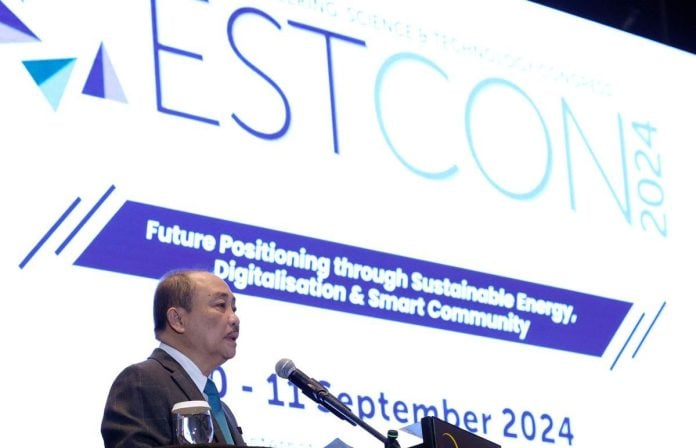KOTA KINABALU: Sabah is on the right track to becoming the region’s premier Deep-Sea Fisheries Hub, thanks to its strategic advantages, including its location along the international tuna migration route, according to Chief Minister Datuk Seri Hajiji Noor.
He said that the state also benefits from naturally sheltered ports and its proximity to major seafood-producing nations such as Indonesia, the Philippines, and Papua New Guinea.
“We have all the prerequisites – strategic location, abundant marine resources, infrastructure, and policy support – to position Sabah as an international-standard centre for deep-sea fish landing, processing, and export.”
Hajiji said in a statement after witnessing the signing of a Memorandum of Understanding (MoU) between Kota Kinabalu City Hall (DBKK) and Petco Trading Labuan Company Ltd, as well as a Memorandum of Agreement (MoA) between DBKK and Alpha Ocean Resources Berhad (AORB).
Under the MoA, AORB will invest RM360 million to develop a European Union (EU)-standard port dedicated to tuna and deep-sea fish landings in Kota Kinabalu.
Hajiji said the project, expected to be completed within 18 months, will create over 1,000 jobs across the fisheries value chain.
“The port will adhere to stringent EU standards, including Hazard Analysis and Critical Control Points (HACCP), traceability systems, monitoring of Illegal, Unreported and Unregulated (IUU) fishing, and comprehensive food safety protocols.
“With such infrastructure in place, we can finally penetrate premium export markets that were previously inaccessible due to a lack of proper facilities,” he said.
Hajiji said Malaysia’s participation in the Western & Central Pacific Fisheries Commission (WCPFC) would further enhance the port’s role as an authorised landing site for registered fishing vessels from around the world.
“With an estimated 1,000 vessels docking annually, each carrying an average of 50 tonnes of catch, Sabah has the potential to land up to 50,000 tonnes of tuna a year, generating an estimated RM1.8 billion in economic value,” he said.
The Chief Minister said the economic benefits would extend far beyond the fish landings to include support industries such as ice supply, bunkering services, and technical maintenance.
At the same ceremony, DBKK also signed an MoU with Petco Trading Labuan Company Ltd to develop a biogas energy complex at the Kayu Madang landfill site.
Hajiji said the project will convert methane gas from solid waste into 2 Megawatts of green electricity.
“This renewable energy will directly benefit the manufacturing sector in the Kota Kinabalu Industrial Park (KKIP). It’s a prime example of a circular economy where waste from one sector becomes energy for another,” he explained.
Both initiatives, he said, also align with Sabah’s Blue Economy agenda, which prioritises sustainable development, value-added fisheries industries, and a transition to clean energy.
“These investments reflect strong investor confidence in Sabah’s economic prospects. I believe the synergy between DBKK, the private sector, and the state government will accelerate economic growth and generate more job opportunities for our people,” he added. – Bernama










